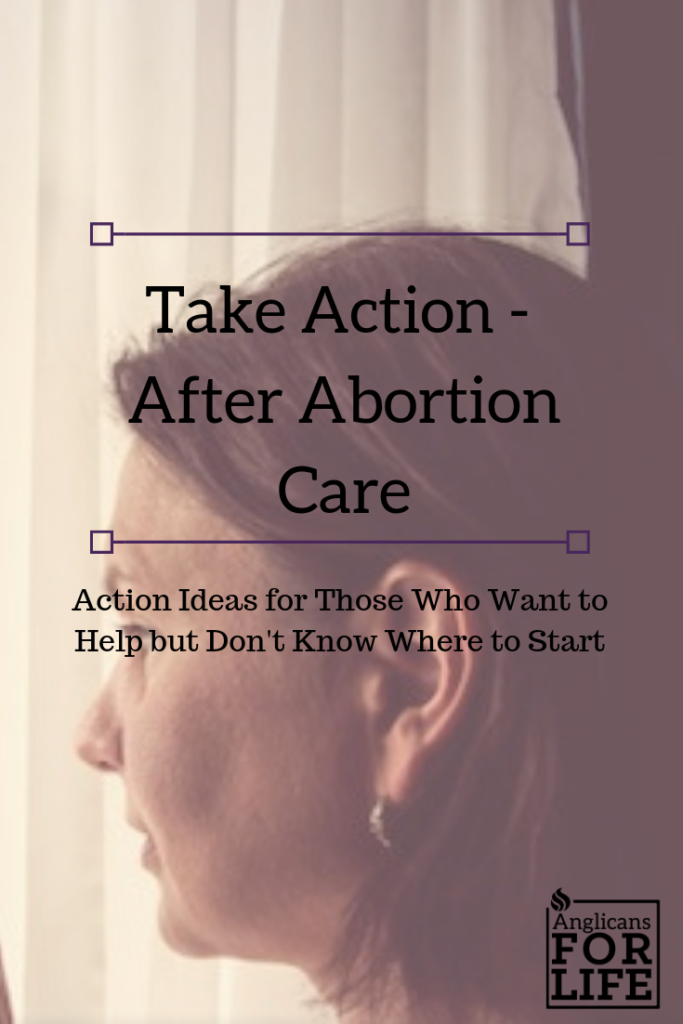Each month we will offer a list of action ideas so you can defend, honor, and celebrate Life in your churches and communities on our Take Action page. This month, we are looking at after abortion care.

1 in 4 women have an abortion by age 45—and some of them are in your church. That means that, yes, the Church and her people need to talk about abortion, specifically forgiveness and healing after abortion.
While many of us don’t want to alienate those who have had abortions or been involved in an abortion decision, silence about abortion can do more harm than good. The Church’s silence on the issue forces hurting women and men to be silent themselves, despite what they are feeling or experiencing. And that’s because abortion grief is a complicated grief. While women often feel relief immediately after the abortion, many later experience depression, suicidal thoughts, increased drug or alcohol use, anxiety, and guilt. In fact, a woman who undergoes an abortion has a suicide risk six times higher than women who have given birth to a child. Additionally, according to a 2011 study from Britain’s Royal College of Psychiatrists, women who have abortions are 81 percent more likely to experience subsequent mental health problems.
Women who have had abortions can also be distressed by external prompts as well. Certain sounds, words, or situations can trigger traumatic memories of the abortion procedure. Discussion or debate about abortion can ignite fight or flight response. Anniversary dates, such as the day of the abortion procedure, the day they confirmed their pregnancy, or the anticipated due date of the child, can deepen feelings of grief. Men who regret their lost fatherhood can also experience depression and regret and have even less freedom to discuss their feelings, due to abortion being considered a “women’s issue”.
Additionally, women who have had abortions often suffer spiritually, fearing the judgement of friends, family, and God and believing that they cannot be forgiven. And that is where the Church must reach out. Make sure that when you talk about the sanctity of life and the wrongness of abortion you also share that repentance and forgiveness after abortion is possible through Christ. Ask your priest or pastor to give a sermon that includes a message of abortion forgiveness. Post an article or announcement in your bulletin about local abortion healing programs. Invite a local abortion healing program leader to speak at your church and include information about the program on your church website or bulletin board. By discussing abortion healing, you may give women and men the chance to grieve their aborted children and find a deeper faith, as forgiveness leads them closer to Jesus.
Action Ideas
- Invite a local abortion healing leader to have a workshop in your church
- Include information about local healing programs on your church website, bulletin board, or Sunday service bulletin.
- If you know someone who has had an abortion, take time to listen to them without judgement. Pray for them and don’t expect an immediate breakthrough. Here are some helpful tips for having that discussion.
